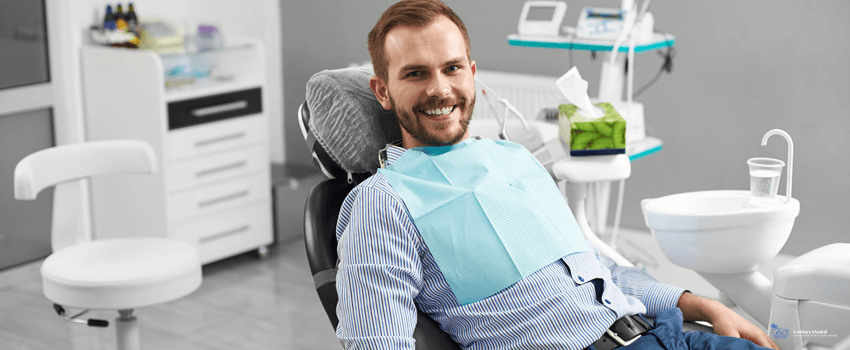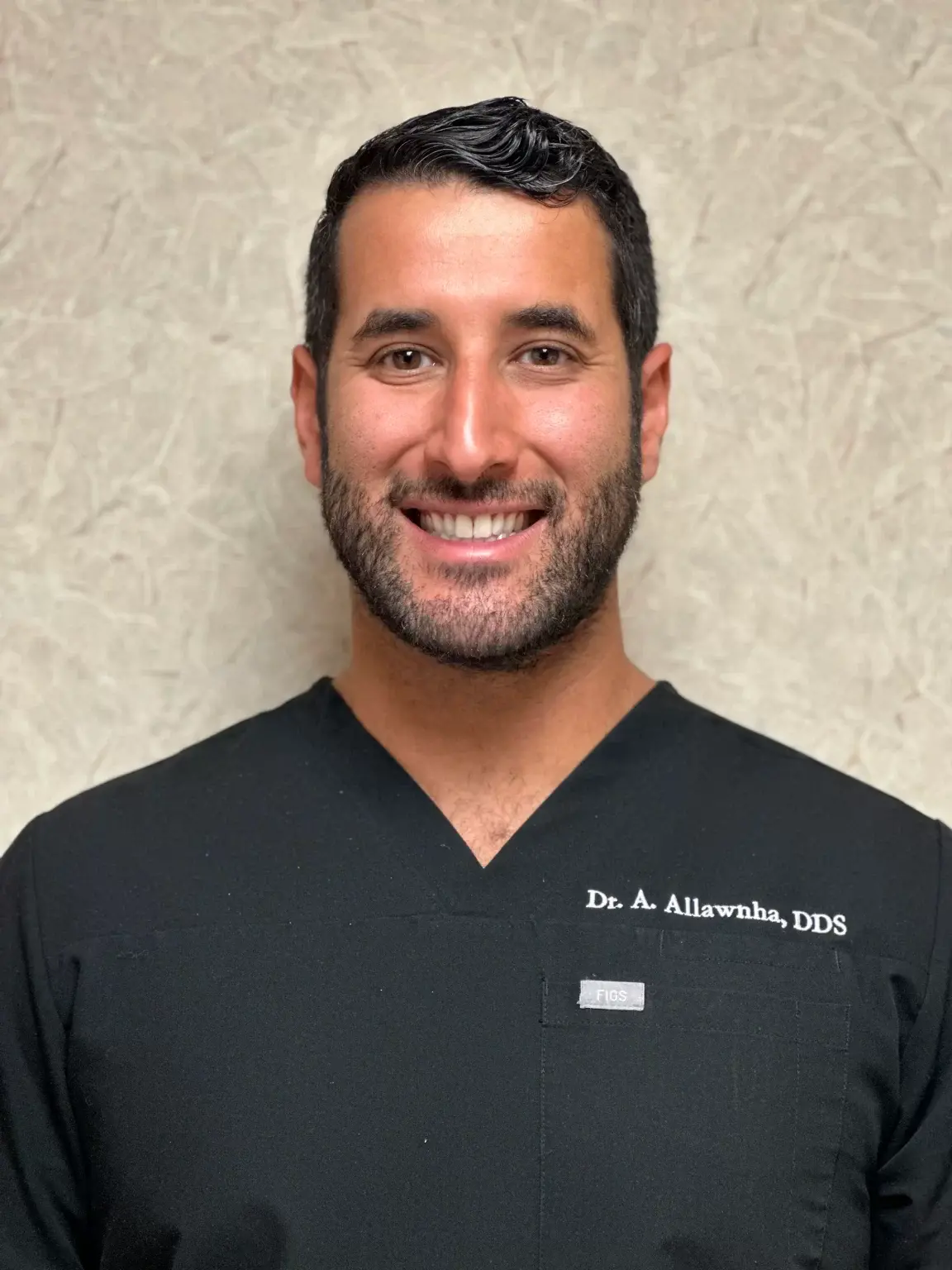John Priestly created nitrous oxide, or laughing gas, by heating iron filings with nitric acid in 1772. He realized the significance of his discovery and published his findings in a book that reached many and led to more experiments. It soon reached Humphry Davy, who was looking for new gases to inhale for patients. He realized nitrous oxide was useful for surgery in 1800, and it also became a hit at parties hosted by the British upper classes because of its effects.
Nitrous oxide was eventually used in practice, but not with initial success. The first time someone tried it was when Horace Wells presented its effects on stage. He failed, which made dentists question its safety. Fortunately, Gardner Quincy Colton had a little more faith and used it more successfully. Today, dentists still use nitrous oxide for their treatments.
What is Laughing Gas?
Nitrous oxide (N2O), also known as laughing gas, can be used to manage anxiety and pain during dental treatment.
Nitrous oxide is colorless and odorless, and it’s meant to calm you before a procedure, not to make you go to sleep. You can still answer your dentist’s questions and follow their instructions during the procedure, and you’ll feel its effects in a matter of minutes after inhaling it.
Your body may feel sluggish and tingling sensations in your limbs while under the effects of nitrous oxide because it’s a depressant. You might also experience these other effects of nitrous oxide, which include:
-
Mild euphoria
-
Happiness
-
Giggling
-
Feelings of relaxation
-
Mil hallucinations
-
Lightheadedness
These effects are why nitrous oxide is also known as “laughing gas.”
Who is Laughing Gas For?
According to the American Academy of Pediatric Dentistry, nitrous oxide is recommended for:
-
Patients that are not adequately numbed with local anesthesia
-
Anxious, fearful, or uncooperative patients
-
Patients with a strong gag reflex that can interfere with the procedures
-
Patients in need of special health care
-
Patients under 18 in need of extensive dental work
Who Should Avoid Laughing Gas?
Is laughing gas safe? Nitrous oxide is a safe and effective sedative, but it might not be right for you. Nitrous oxide still has its risks, especially if you have these conditions:
-
Vitamin B12 deficiency
-
Pregnancy in the first trimester
-
Methylenetetrahydrofolate reductase deficiency
-
Mental health condition history
-
Previous history of chronic obstructive pulmonary disease (COPD) and other respiratory illnesses
-
Substance abuse history
Advantages of Laughing Gas
Aside from being a safe and effective sedative, dentists use it because:
-
Patients quickly feel more relaxed.
-
Inhaling pure oxygen clears its effects.
-
It keeps patients awake during the procedure, allowing them to communicate with their dentist.
-
It’s easy to adjust the depth of sedation it causes.
Disadvantages of Laughing Gas
Nitrous oxide is not without risks and side effects.
Side Effects
Using nitrous oxide under the supervision of a dentist is safe; however, some people may still experience side effects during and after using it.
Headaches and nausea are common laughing gas side effects. Fortunately, only 5% of patients ever get to experience them.
Nitrous oxide doesn’t have long-term side effects. However, your dentist might recommend you take Vitamin B12 supplements if you have multiple procedures requiring you to use nitrous oxide to help prevent anemia.
Risks
Using nitrous oxide with the prescription or supervision of a dentist or doctor carries risks. Recreational drug users use it for its euphoric effects. They use a bag to dispense it directly into the mouth, leading to its classification as an inhalant. They are also found in silver chargers used in making whipped cream.
Some laughing gas risks caused by its recreational use include:
-
Low blood pressure
-
Vitamin B12 deficiency
-
Fainting
-
Nerve damage
-
Heart attack
-
Anemia
The recreational, long-term use of nitrous oxide leads to several adverse long-term effects like:
-
Numbness in the feet and hands
-
Depression
-
Memory loss
-
Ringing in your ears
-
Psychosis
-
Incontinence
-
Psychological dependence
-
Weak immune system
-
Limb spasms
Its ability to affect your coordination makes nitrous oxide dangerous, especially if you use it in a place where you can endanger others or cause injury or death. You should never try to drive or operate heavy machinery if you’re still under the effects of nitrous oxide.
What To Expect
Nitrous oxide is easy to administer since it doesn’t require needles, unlike other sedatives. Your dentist will begin by asking you for your consent, then cover your nose with a small mask.
Your lungs will easily absorb nitrous oxide, and you’ll feel its effects after about two minutes. It will cause a slight tingling sensation in your body and general numbness. It may also put you in a dream-like state, but you’ll still feel conscious and communicate with your dentist effectively. You can always ask your dentist to adjust the sedation to levels that won’t put you completely to sleep.
How long does laughing gas last? Nitrous oxide will last for about 15 to 30 minutes after your dentist removes the mask. You can drive right home after the effects completely wear off.
How To Prepare for Procedures Involving Laughing Gas
Procedures involving nitrous oxide don’t require much preparation. However, you might want to eat light before your dental appointment to reduce nausea and vomiting. Continue eating light a few more hours after your appointment to eliminate other side effects.
Laughing Gas Misconceptions
Hollywood and other forms of media have led to some of these misconceptions about nitrous oxide:
-
It is expensive. Nitrous oxide costs range from $250-$100 based on the amount your dentist will administer, your dentist, and your location.
-
It is dangerous. Nitrous oxide administered by a medical professional is safe.
-
It will make you laugh. Despite being called “laughing gas,” it won’t make you laugh uncontrollably. It helps reduce your anxiety, not your self-control.
-
It can make you reveal your secrets. You won’t lose your self-control just by inhaling nitrous oxide, so don’t expect to spill all your secrets anytime.
Experience less dental anxiety at Century Dental.
Our dentist near Treasure Island, FL performs sedation dentistry to help patients feel more comfortable and at ease during their treatments. Call us today for more information on our sedation dentistry services and other concerns.





